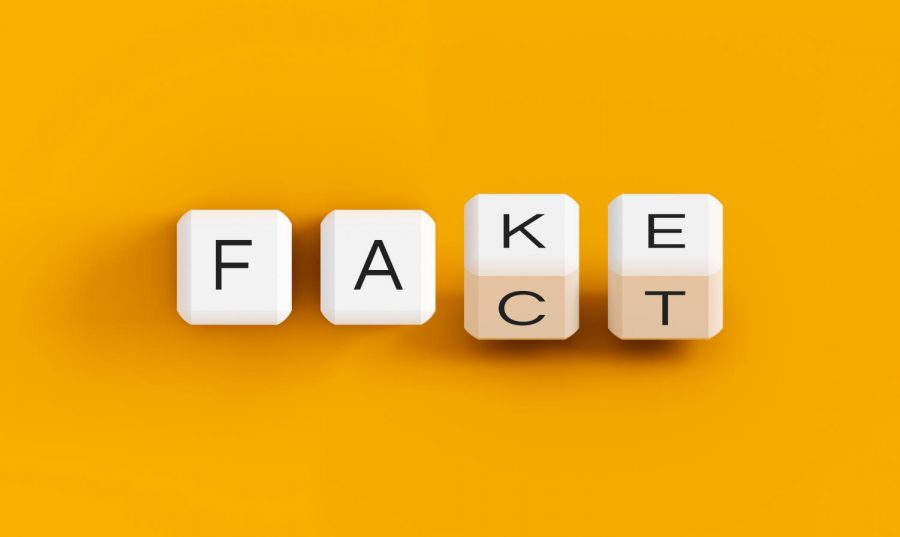Internet memes can spread misinformation
Letter tiles reading fake or fact.
October 20, 2021
From a grumpy cat to a pessimistic Sean Bean from “Lord of the Rings,” we’ve all become accustomed to internet memes and their humor. However, their harmless nature has been perverted and used to convey false information on social media. With their effect being hazardous in the wake of the COVID-19 pandemic and 2020 presidential election, people need to realize that internet memes aren’t fact and can do great harm if recklessly used.
Sometimes it’s obvious when a meme is false or is just being used to convey something humorous. In 2016 during the Republican Primary, memes were made about then-candidate Senator Ted Cruz being the Zodiac Killer. This information is obviously false, considering that Cruz wasn’t born until 1970, and the Zodiac’s last confirmed murder was in 1969.
However, memes can be used to spread false information that is more believable. One famous example is a quote often attributed to Albert Einstein, “the definition of insanity is doing the same thing over and over and expecting different results.” He actually never said that— author Rita Mae Brown did. But it sounds like something he would say, so it doesn’t result in viewer skepticism.
But while that example is relatively harmless, internet memes have been used to spread false information about the pandemic, the COVID-19 vaccine and other relevant social issues.
Physical, reputational, relationship, emotional and economic harm can be a result of spreading false information, said Karen Whedbee. And when factual information is no longer available, poor decisions can be made.
Misinformation on social media has become a massive problem, with 60% of Americans in 2020 saying that false information played a large part in the 2020 election, according to Pew Research Center.
“Social media has completely transformed who speaks, how and where we speak, what we say and who we talk with,” said Karen Whedbee, a professor of communication at NIU. “It’s easy to be in constant communication with people on (the) other side of the world. Video and sound recordings can be taken out of their original context and the meaning can be completely transformed or distorted.”
Social media companies have a responsibility to flag false information. While there are practices in place, social media companies aren’t doing a lot to prevent this and have a history of not intervening until it’s too late. Facebook might be cracking down on posts that peddled election misinformation, but not until November 2020 when much of the damage had already been done, according to the Associated Press.
There is also a responsibility among users to make sure that what they post is actually factual. Four in 10 Americans view social media as an important way of news consumption, according to Pew Research Center. This shouldn’t be the case, as news must be obtained from reliable news sources instead of social media. While it might seem convenient, websites masquerading as news and internet memes posing as informational graphics can spread misinformation without people even realizing it.
“We don’t want to be gullible, but we also don’t want to become cynical about truth either,” Whedbee said. “Having a broad education in the humanities and sciences can be very helpful. Doing our best to become well-informed about things like civics and standards of political debate and decision making can also be very helpful.”
And if you can’t use your own words to convey your views and have to rely on a photo of Clint Eastwood or Albert Einstein, then maybe you shouldn’t post at all.














